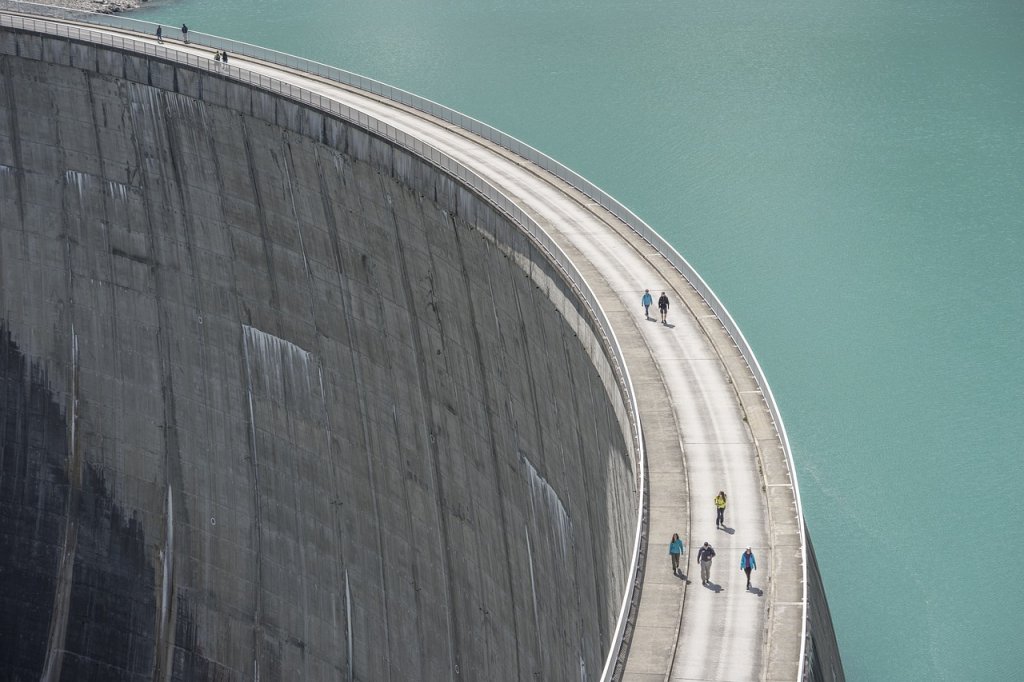
There are four most important, indispensable needs for human beings to survive: energy, water, food and health. Everything else revolves around these. If you touch one of these areas in the business world or in your career, you will be fine.
After writing my book “Energy Wars” which was published by Destek Yayınları in 2023, I was thinking that I should sit back and write about the “Water Wars”, which are expected to take place in the heart of Türkiye in the coming decades.
Why Aren’t There Water Wars Yet?
Contrary to the discourse of “Water wars are next”, no matter how cruel and warlike people are, when the dire consequences of water scarcity are considered, policy makers manage to sit at the table, hammer out common solutions or leave problems on dusty shelves.
Water problems generally arise in transboundary waters, that is, waters originating from one country and passing through several countries. Border waters that define international borders can also cause problems. Humanitarian disasters such as the Rwandan genocide or the war in Darfur, Sudan, can be attributed to water conflicts.
Today, 14 of the 26 countries suffering from water shortage are in the Middle East. Most of the water-based political problems in the world occur around the Middle East, especially in the Mesopotamia Region (Türkiye – Syria – Iraq) and the region between the Jordan River and the Golan Heights (Jordan – Israel – Palestine), called the “Waterless Triangle.”
Tigris and Euphrates
The Tigris River is a contentious issue between Türkiye and Iraq regarding its water potential. Approximately 52 percent of the Tigris River, which originates from Türkiye, passes through Syria to Iraq and joins the Euphrates there, is in Türkiye and 48 percent in Iraq. But while there is no contribution from Syria to the Tigris River, Syria demanded water from the Tigris in both international and bilateral meetings held for a solution in the past. This is a reasonable offer neither for Iraq nor for Türkiye. Hence, there is still no solution to this problem.
The Euphrates River originates from Türkiye, passes through Syria to Iraq, joins the Tigris and flows into the Gulf. Considering the water potential, Türkiye contributes 88 percent of the Euphrates’ water and Syria only 12 percent. Iraq has no contribution to the Euphrates at all. However, during the negotiations between the basin countries held throughout past years, Iraq’s demand for water from the Euphrates was not accepted by the other two riparian states.
Some scientists argue that the issues of the Tigris and Euphrates Rivers should be addressed together- if these two rivers are considered a single basin, as they merge and form the name Shatt-ul Arab before flowing into the Gulf.
One of the water-based problems that Syria confronts Türkiye is the Asi River issue. Originating in Lebanon, it is 40 km there, then 120 km in Syria and 88 km in Türkiye. Riparian states could not sit at the table for the Asi River, which flows into the Mediterranean in Hatay and irrigates the Amik Plain, one of the most fertile lands of Türkiye (first-class agricultural land). Syria, which has almost no problems with Lebanon on this issue, has not been willing to negotiate with Türkiye for years because it did not consider Hatay as Turkish territory for a long time. The troubled waters are still with us but have never given rise to any hot conflict to date.[Metin Kaydırma Sonu]
Turkey is somehow connected with the water dispute between Israel and Syria over the the Golan Heights because Tel Aviv puts forward “reasonable solution” on the back of Turkey suggesting that Turkey should increase the amount of water given to Syria from the Euphrates River so that there will be less dependence on the water in the Golan Heights occupied by Israel. Of course, it is out of the question for Ankara to accept such an approach.
At a time when Damascus and Baghdad are dealing with their own deep-seated internal problems including the threats to their territorial integrity, it is in Ankara’s interest to take these long-standing problems off the shelves and make efforts to resolve them in a win-win fashion, so that it does not encounter fait accomplis in the future.
Water problems are not limited to the Middle East
The Nile River is one of the longest rivers in the world and is the life source and heart of the African Continent. The Nile River, which travels thousands of kilometres from Ethiopia and Lake Victoria in Uganda to the Mediterranean, is located between Egypt, Sudan, Ethiopia and Uganda, Tanzania, Kenya, Rwanda, Burundi and Zaire. There were serious tensions between Sudan, Egypt and Ethiopia. Later, in 1959, with the support of the Soviet Union, an agreement was signed between Egypt and Sudan, and all the Nile River waters were shared between these two countries. Tension continues, but there is thankfully no war in sight. On the contrary, there are sustained efforts for cooperation in better using the waters and preventing conflict.
With the dissolution of Yugoslavia, the Danube River basin, which originates from Germany and flows into the Black Sea, became one of the contentious issues among the riparian states. Many initiatives regarding the Danube River basin, which today consists of twelve states, have been initiated, and the International Danube Commission was established in 1998. However, effective cooperation has not been established to prevent the pollution of the Danube River. If Johann Strauss were alive today, he would change the name of his famous composition “The Blue Danube” perhaps to “The Brown Danube”. Still, there is talk of cooperation across the region, and not a word of conflict.
Originating in China and passing through Nepal and India, the Ganges River flows into the Indian Ocean in Bangladesh after drawing the 128 km India-Bangladesh border. As a result of negotiations, in November 1977, India signed an agreement on the principle of equitable use of water. With this India agreed to release 63 percent of the waters of the Ganges River to Bangladesh.
In the case of Rio-Grande River, the US initially pursued a strict “absolute dominance” policy, but after the establishment of NAFTA, it softened and approached the principle of basin integrity. Arrangements were made to share the Colorado, Tijuana and Rio Grande rivers jointly between the US and Mexico.
The unequal sharing of the waters of the Syr Darya and Amu Darya rivers, which are the important rivers of the Aral Basin, among the countries is on the way between the countries of the Fergana region. Tajikistan and Kyrgyzstan’s use of the water as a trump card due to various considerations causes the strains to rise in the region.
There is a water shortage in Azerbaijan. There are concerns that this problem will grow in the coming years and that the social and economic structure of the country will change. An unknown aspect of the Karabakh conflict, which lasted for many years between Armenia and Azerbaijan, is the Sarsang Reservoir located within its borders.
Undoubtedly, similar water-sharing problems are emerging among many African, Latin American and Southeast Asian countries. Due to climatic conditions, the risk of desertification and drought increases the value of water. Conflict risk is also felt in the same distribution.
Türkiye’s Situation not so Encouraging
Contrary to the popular belief, Türkiye is not a “water-rich” country. The annual amount of water per person is 1,323 cubic meters. According to the Falkenmark Water Scarcity Index, this amount is present in countries experiencing “water stress”, such as Türkiye.
In the past 50 years, 1.3 million hectares of wetland, the size of three Van Lakes, have been lost in Turkiye. Today, the shortage of fresh water is 74 percent in agriculture, 15 percent in domestic use and 11 percent in industry.
The picture Türkiye is likely to face in the future, with population growth and the elimination of the effects of climate change, is not very encouraging. According to population estimates, the annual amount of usable water per person is expected to decrease to 1,200 cubic meters in 2030, 1,116 cubic meters in 2040, and 1,069 cubic meters in 2050. In other words, Türkiye’s future is likely to be a “water-poor” country, unless there is an increase at the level of other unknown water resources.
***
While I was talking about energy wars at the Atlantic Dialogues summit in Marrakech in December 2023, it was surprising to hear the following comment from my German colleague: “The problem of transboundary waters, which constitute 60 per cent of the world’s water, will not lead to hot wars around the world, as it does in energy, because it is not possible to replace the water loss that might be caused by war.”
At least for now, because no one has been able to measure the potential and courage of human beings to harm themselves beyond imagination. I hope my German colleague is right about “water peace” and I would be happiest to delay my “water wars” book project.

Mehmet Öğütçü
Chairman, Global Resources Partners, UK, and The London Energy Club. Former diplomat, prime minister adviser, IEA and OECD senior executive, director and independent board member at British Gas, Genel Energy, Invensys, Şişecam, Yaşar Holding companies. Chairman of the Middle East Institute, Washington DC, Advisory Board. He can be contacted at [email protected]
To cite this work: Mehmet Öğütçü, “Energy Wars & Water Peace”, Panorama, Online, 7 February 2024, https://www.uikpanorama.com/blog/2024/02/07/energy-water/
Copyright@UIKPanorama All on-line and print rights reserved. Opinions expressed in works published by the Panorama belongs to the authors alone unless otherwise stated, and do not imply endorsement by the IRCT, Global Academy, or the Editors/Editorial Board of Panorama.


